Home > Dom Afonso VI
Dom Afonso VI
July, 1109 (Guimarães, Portugal) – December, 1185 (Coimbra, Portugal)
Despite its decoration in shades of dark blue, the various windows make this room a bright and radiant place. On the balcony, you can see Lisbon and the main areas of the palace.
The Master With View – Dom Afonso VI offers warm and inviting comfort for up to two guests. Decorated in cozy blue tones, the room features two twin beds, a stylish rug, and a spacious balcony with pleasant views of the hotel and the city, creating a welcoming and relaxing atmosphere.
The bathroom continues the warm décor, featuring a rainfall shower and harmonious blue tones. Amenities include a Delta coffee machine, minibar, TV, free Wi-Fi, air conditioning, hairdryer, and safe. Complimentary coffee and water are provided throughout your stay for a comfortable and enjoyable experience.
See our other rooms in the Master with a View category
- Up to 2 People
- 27 m2
- 2 Twin Beds
- Balcony
- City View
- Coffee Machine
- Mini Bar
- Television
- Free WiFi
- Air Conditioning
- Hairdryer
- Safe
- Offer of Delta Coffee and Water throughout your Stay
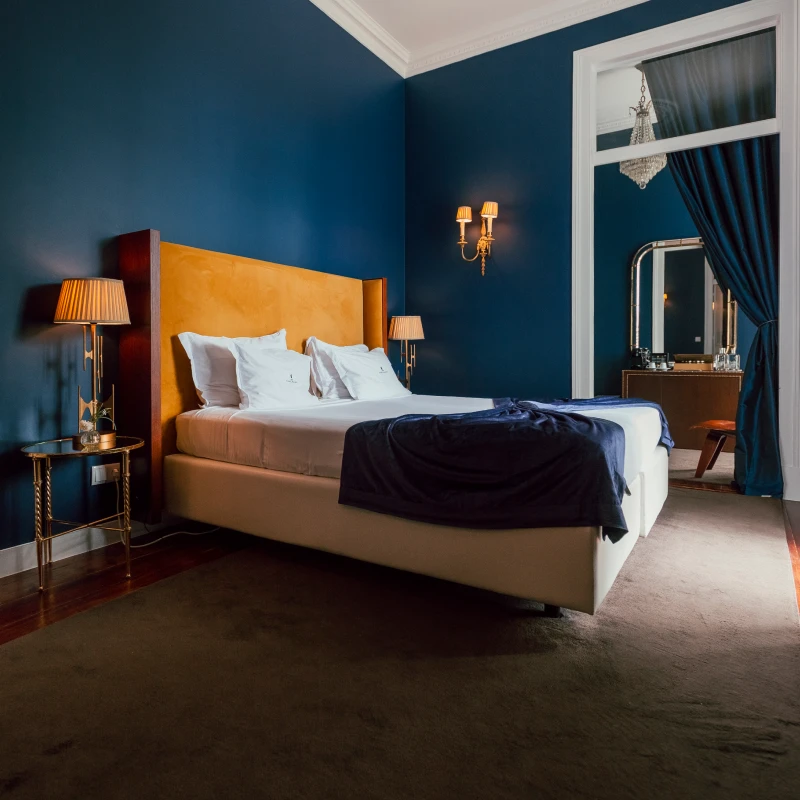
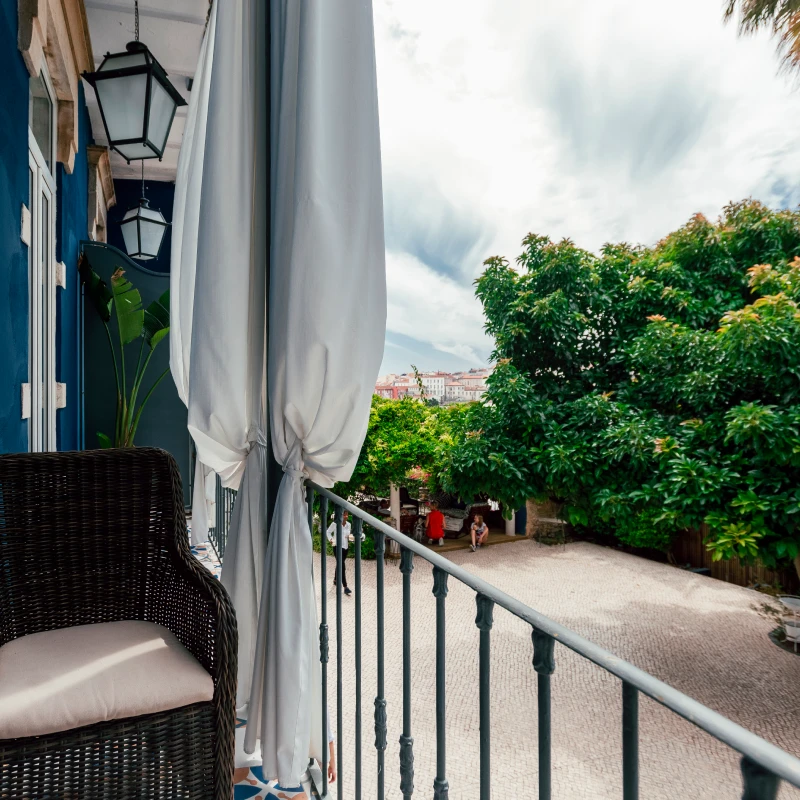
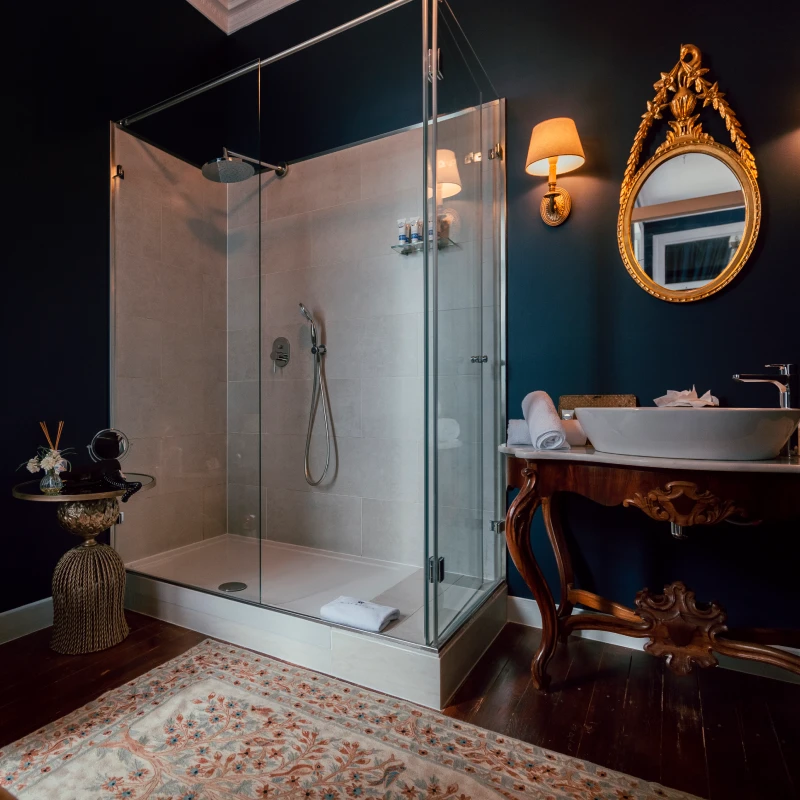
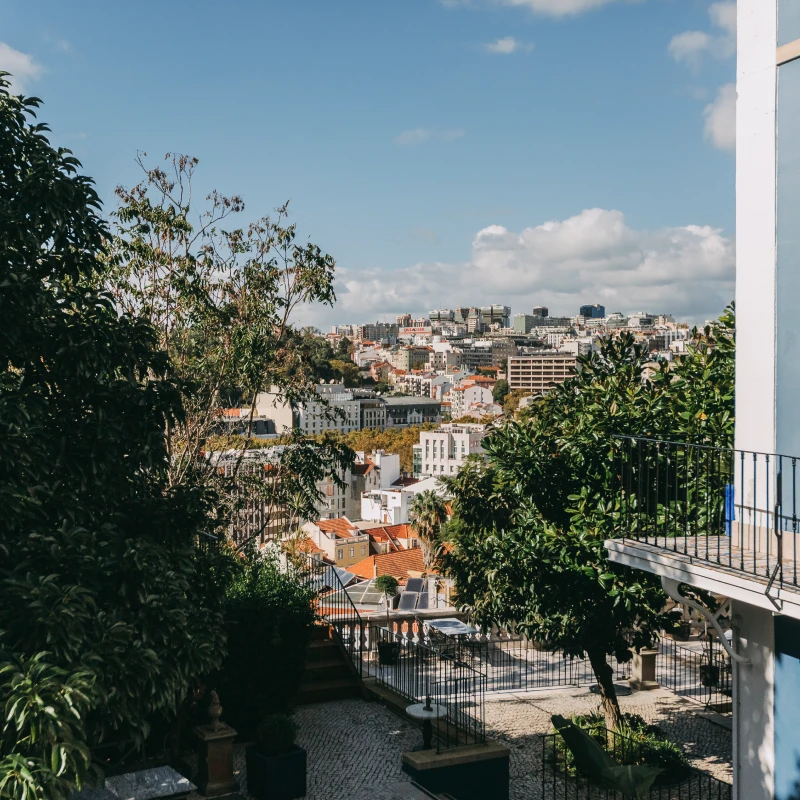
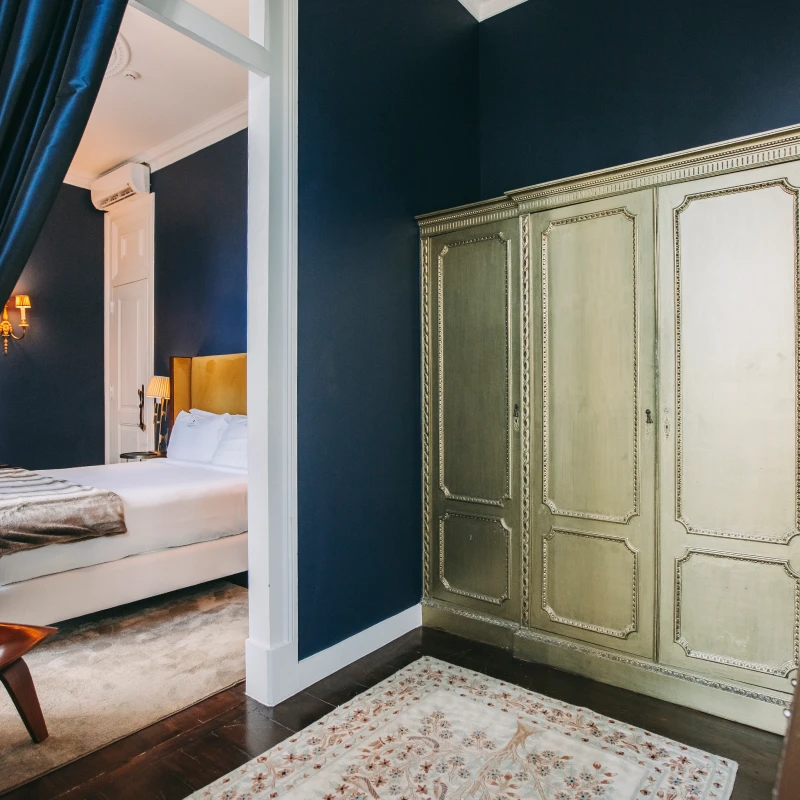




In Honor of...
Dom Afonso VI

Dom Afonso VI was King of Portugal from 1656 to 1683, a reign marked by internal struggle, personal challenges, and key victories in the fight for Portuguese independence. Son of King João IV and Queen Luisa de Gusmão, he came to the throne at the age of 13, during a fragile time for the newly restored Portuguese monarchy after 60 years of Spanish rule.
Plagued by health issues from childhood — including partial paralysis and mental instability — his reign was overshadowed by the influence of regents and ministers. Despite his limitations, some of the most decisive battles of the Portuguese Restoration War occurred during his reign, culminating in Spain’s recognition of Portugal’s independence in 1668.
That same year, however, Dom Afonso was deposed by his own brother, the future King Pedro II, who took over as regent and later as monarch. Dom Afonso spent his final years confined in the Palace of Sintra, away from court life.
His story is one of power, fragility, and the complex dynamics of royal responsibility. Though controversial, his reign coincided with a defining moment in Portuguese sovereignty, securing the nation’s freedom from foreign rule.









